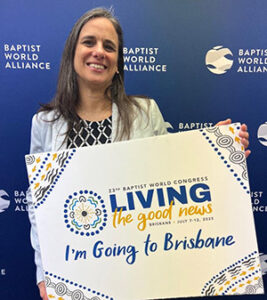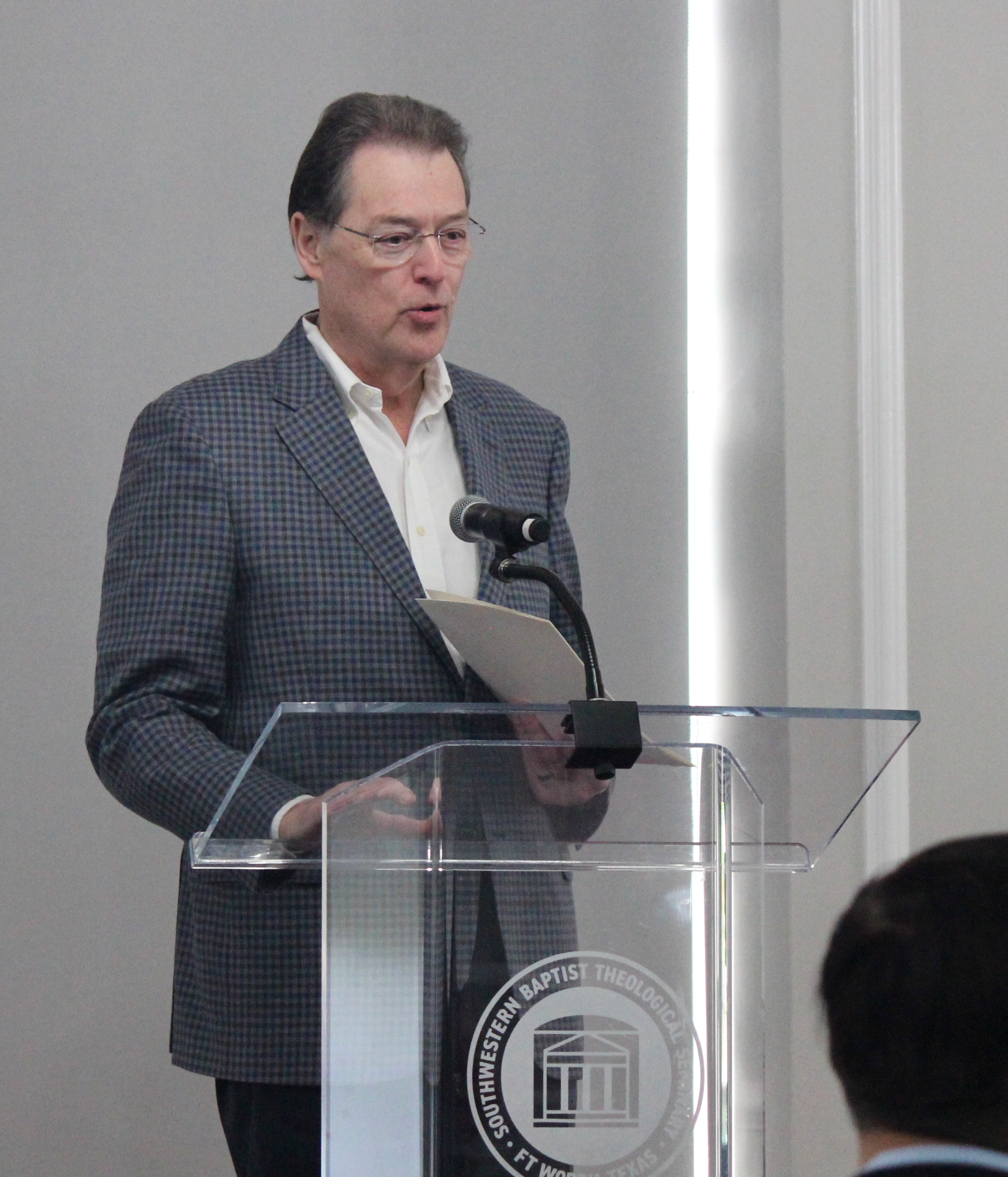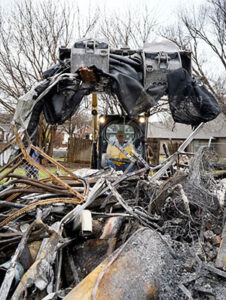Mangieri named as CEO of Baptist publishing house
Carolina Carro de Mangieri, director of global events and fellowship for the Baptist World Alliance, has accepted the role of chief executive officer/publisher of Editorial Mundo Hispano/Casa Bautista de Publicaciones in El Paso.

Mangieri will conclude her time of service with the BWA following the upcoming 23rd Baptist World Congress in Brisbane, Australia, in July and assume her new role in August.
In addressing the publishing house’s board, Mangieri emphasized the importance of continuing the publishing house’s mission, adapting to technological and cultural changes without losing the essence that has characterized the organization throughout its history.
Editorial Mundo Hispano/Casa Bautista de Publicaciones was founded as the Baptist Spanish Publishing House in 1906 to provide Spanish-language Christian resources.
Mangieri will succeed Raquel Contreras-Smith, who has held the CEO position for the past 12 years.
“I have known Carolina for many years and I am confident that she is the right person to continue our tradition of publishing resources that communicate the message of Jesus Christ and that encourage and support the formation of his disciples,” Contreras said.

Gus Reyes, president of the publishing house’s board of directors, expressed his confidence God brought Mangieri to the position.
“We are very grateful to the Lord for having guided us to Sister Carolina Carro de Mangieri. We trust that she is the person God has provided to continue the mission of Casa Bautista de Publicaciones,” Reyes said.
Since joining the BWA in November 2004, Mangieri has helped shape the BWA’s global events strategy, strengthen member fellowship and advance the mission of BWA around the world.
“We are deeply grateful for Carolina’s faithful service and the creativity, excellence and passion she has brought to our work,” said Elijah M. Brown, BWA general secretary and CEO.
“Her leadership has fostered greater unity, richer fellowship and broader collaboration among our global Baptist family.”
Mangieri key in coordinating international gatherings
Mangieri was instrumental in coordinating numerous international gatherings over the course of her 20 years of service, including two Baptist World Youth Conferences, 15 BWA annual gatherings, four Baptist International Conferences on Theological Education and four Baptist World Congresses.
During the COVID-19 pandemic, she facilitated the transition of the 2020 Baptist World Congress—originally scheduled to take place in Rio de Janeiro, Brazil—to a fully virtual gathering in 2021.
As the most globally diverse gathering in the history of the BWA, the 22nd Baptist World Congress united more than 4,600 registrants from 146 countries across time zones and technology to experience more than 100 hours of worship, prayer, and training.
With a deep family legacy of involvement in the BWA, Mangieri first experienced a BWA gathering at age 10, observing her parents help lead the 1984 Baptist World Youth Conference in her native Argentina.
Eleven years later, she became an active participant in BWA’s global ministry herself, serving on the worship team at the 1995 Baptist World Congress in Buenos Aires.
During her tenure on the BWA staff, she has provided ministerial presence and leadership in 23 countries, assisted with the translation of BWA resources into Spanish, and represented the BWA at many conventions and conferences.
She has been supported throughout the years by her husband David and their three daughters.
“Over the past 20-plus years at the BWA, I have been profoundly blessed to serve and witness the growth and transformation of our global Baptist family,” Mangieri said. “The relationships and experiences I have gained will forever hold a special place in my heart.”
Brown asked Baptists globally to join in prayer for God’s continued blessings on her ministry.
“We celebrate Carolina’s legacy of impact and anticipate all God will continue to do through her new role with Casa Bautista de Publicaciones, a ministry that has been strengthening discipleship for 120 years,” said Brown.
“We look forward to collaborating together in the future as we live out our shared mission to impact the world for Christ.”
Compiled from news releases provided by the Baptist World Alliance and Editorial Mundo Hispano/Casa Bautista de Publicaciones.






